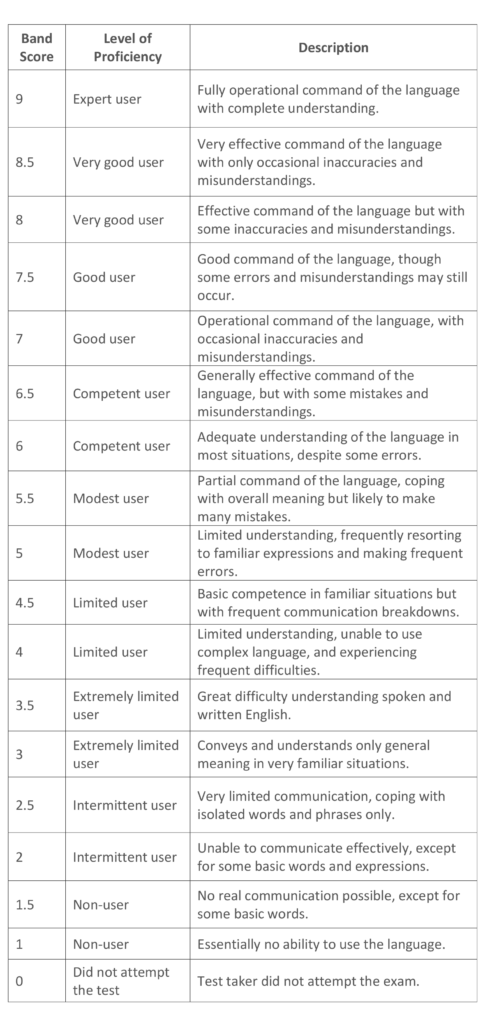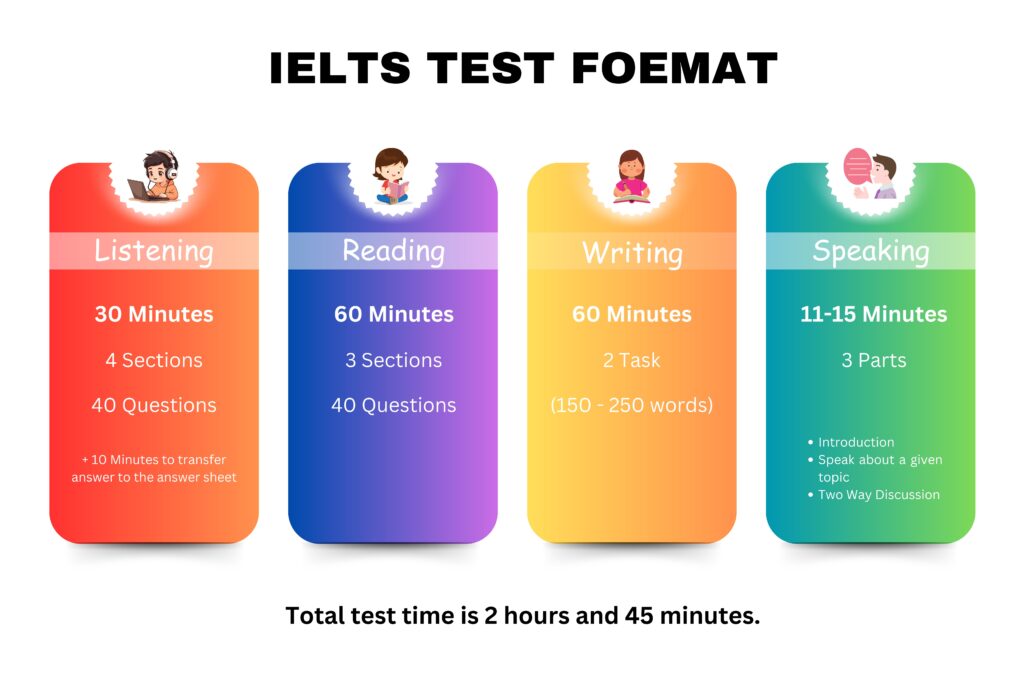Introduction
The International English Language Testing System, commonly known as IELTS, is a standardized English language proficiency exam designed to assess the language skills of individuals who want to study, work, or immigrate to English-speaking countries. It is recognized and accepted by over 10,000 institutions and organizations worldwide, including universities, immigration authorities, employers, and professional bodies.
IELTS is jointly managed by the British Council, IDP: IELTS Australia, and the University of Cambridge ESOL Examinations. The test evaluates the four key language skills necessary for communication: Listening, Reading, Writing, and Speaking.
Why Take The IELTS Exam?
IELTS holds immense importance globally for several reasons. It is crucial for students seeking to study abroad, as universities often require IELTS scores for admission. Additionally, many employers demand IELTS scores from job applicants to ensure effective workplace communication.
Governments of English-speaking countries use IELTS scores as part of immigration and visa applications. The test’s wide recognition by institutions and organizations worldwide makes it a preferred language assessment tool. Moreover, achieving a good IELTS score enhances personal language development, enabling better communication in a globalized world.
The certification obtained from IELTS can be advantageous for scholarships, internships, and professional opportunities. Lastly, the fair and standardized evaluation process ensures an unbiased measure of language proficiency, making IELTS a reliable and accessible choice for language testing.
The exam is available in two versions: IELTS Academic and IELTS General Training.
- IELTS Academic: This version is suitable for individuals applying to study at universities and other higher education institutions in English-speaking countries. It assesses the language abilities needed for academic purposes, such as lectures, seminars, research, and academic writing.
- IELTS General Training: This version is designed for individuals seeking to migrate to English-speaking countries for work experience, training programs, secondary education, or immigration purposes. It evaluates everyday language skills for social and workplace contexts.
IELTS Scoring and Bands
IELTS scoring is based on a nine-band scale, with each band representing a different level of English proficiency. Below is a table explaining the IELTS scoring system:










